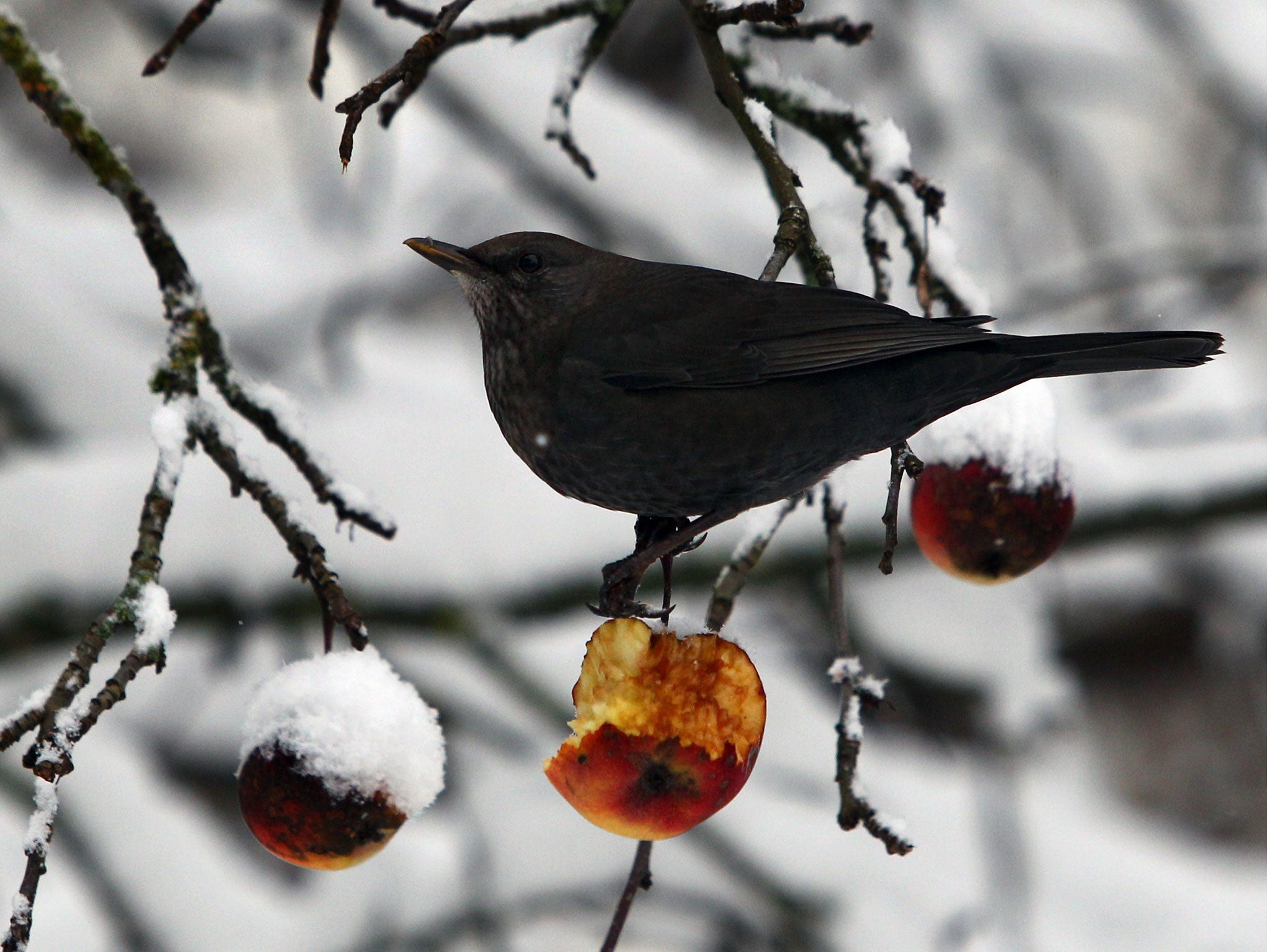Nature Studies: It’s not yet spring until I’ve heard the first song of the blackbird
Blackbird song has a clarity and a sweetness that is lovelier than the nightingale’s

It is a peculiar longing, to be waiting to hear the first blackbird. It is strange in its intensity.There are so many early flowering plants this year, after our record warm December – as we reported, there were a scarcely believable 612 species in bloom across Britain on New Year’s Day – that you might be excused for saying that spring has started already.
But for me it hasn’t, because for me there are two springs: the one going on in the outside world, and the one that goes on inside you.
The one in the world around us may or may not have begun, but my internal springtime definitely hasn’t kicked off yet, because the starting pistol I hear for this particular race (the race to reproduce) is not a flower bursting into bloom, but birdsong.
It used to be the unmistakable, metronomic, two-note song of the chiffchaff, the tiny leaf-warbler newly back from its North African winter, which I would catch on weekend outings to the countryside in mid-March, and my heart would instantly lift. Inside me spring was under way at once.
But things have changed. The chiffchaff was my springtime signal in all the years when I worked in an office and led the nine-to-five existence (or in my case, as with most journalists, 10-to-six). Living that life, you finish work when it’s dark and weekends are your only chance to go out and taste the natural world.
But now, working from home, I am free to wander out at any time of the day, and am thus privileged to observe things to which office workers are of necessity blind – the main one, at this moment of mid-February, being that evenings have returned.
Evenings don’t really exist in midwinter, but as February progresses you become aware of them, at what used to be called “teatime” – that’s if you are not stuck at a desk in a neon-lit workplace. Outside, you are swept up in their brief but exquisite transformation of the world, especially of the light, from a light which is prose to a light which is poetry – a light which has softened, and contains a radiant stillness. This light triggers a torrent of birdsong, for half the year – but not quite yet.
Most British birdsong shuts down in August and is silent for the next six months (with the notable exception of robins, which sing loudly throughout the winter). It is only in February that the rest of the avian chorus starts up, and the great soloists are the blackbirds.
Blackbird song has a clarity and a heart-stopping mellow sweetness that is lovelier than the nightingale’s, which is celebrated only because of the unusual circumstance of it being heard in the middle of the night. If blackbirds were not such commonplace “backyard birds”, as Americans would say, we would appreciate them far more.
But in my part of the world – a leafy west London suburb – the blackbirds haven’t yet started, and I am longing for them. In the late afternoons, in these newly arrived evenings, I walk out to listen for the first one. Among all the robins, I’ve already heard the first dunnock, sounding like a shopping trolley being wheeled along, and the first song thrush, which was a genuine thrill. But no blackbird – yet.
I imagine I must cut an odd figure, an ageing bloke walking up and down the tree-lined avenues in the gloaming and stopping to listen every hundred yards or so, but it can’t be helped: my blackbird-longing is too keen. One day last week, there was a snatch of song which made my heart leap, but it was only a particularly melodious robin. At the weekend, I heard, for the first time this year, a blackbird giving its alarm call, its “chuck-chuck-chuck”, which means, “Hey look everybody, there’s a cat.” But no song.
It’s coming, though; not long now. In the garden next door the magnolia is out in full – a month early – and in the local park the daffodils are nearly over. But spring hasn’t begun yet for me, and it won’t until I hear those effortless, gentle sweet notes, clear on the air, pouring from that bird of black plumage and bright yellow beak on the rooftop or in the treetop.
And, in that instant, spring begins in my heart.
Join our commenting forum
Join thought-provoking conversations, follow other Independent readers and see their replies
Comments
Bookmark popover
Removed from bookmarks